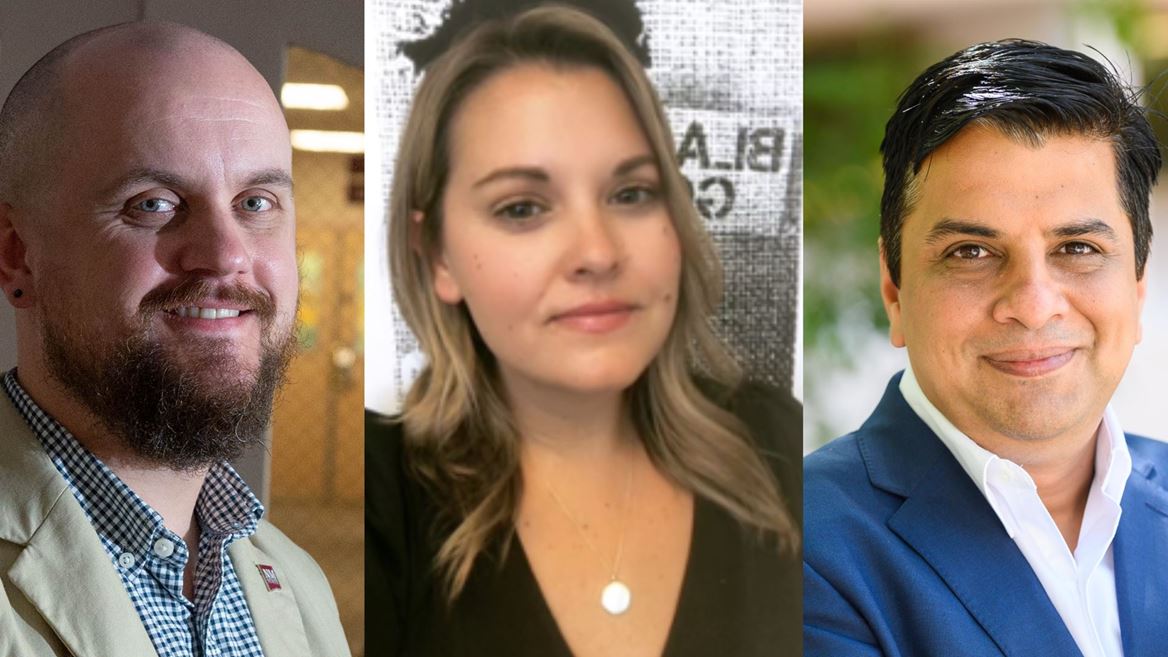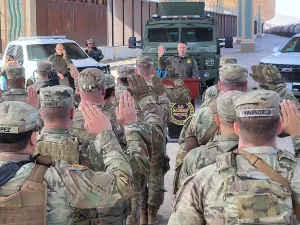From left, New Mexico State University researchers Marshall A. Taylor, Heather Harper and Jagdish Khubchandani have received a National Science Foundation grant to study public health messaging and misinformation. (NMSU and courtesy photos)
Source: NMSU News Release
DATE: Aug. 16, 2024
WRITER: Carlos Andres López, 575-646-1955, carlopez@nmsu.edu
Three researchers from New Mexico State University’s College of Health, Education and Social Transformation have received a National Science Foundation grant to fund a new research project aimed at examining public health messaging and misinformation.
The project seeks to measure the extent to which message content consistency among federal and state public health agencies is associated with the diffusion of discordant information on social media and whether individual compliance with public health recommendations is related to message content consistency.

The research team includes Marshall A. Taylor, an associate professor of sociology and the project’s principal investigator; Heather Harper, an assistant professor of sociology; and Jagdish Khubchandani, a professor of public health sciences.
“Studies show that institutional trust is a core factor behind whether or not an organization can influence individual behavior,” Taylor said. “At its core, this project is an examination of how volatility in public health agency messaging might, or might not, erode trust and lead to disconcerting behavioral responses – namely, spreading misinformation or refusing to follow public health guidelines.”
The $620,095 NSF grant will provide full tuition, a 12-month stipend and benefits to two graduate students for three years. The funding jointly comes from the NSF’s Sociology Program, the Established Program to Stimulate Competitive Research Collaborations, the Secure and Trustworthy Cyberspace program, and the Directorate for Social, Behavioral and Economic Sciences.
“This grant will also fund multiple graduate students here at NMSU and provide critical research training that students can take to the public, private or academic sector,” said Harper, who joined NMSU in 2022.
Khubchandani, who authored several studies on vaccine hesitancy and preventive behaviors during the height of the COVID-19 pandemic, said the project may help improve messaging strategies when future public health emergencies occur.
“Global health crises are also information crises, and there was a lot of confusion during the COVID-19 pandemic,” Khubchandani said.
Taylor added that message inconsistency was much more common during the COVID-19 pandemic as scientific knowledge about the virus frequently changed.
“Updating our public health recommendations to reflect new knowledge was necessary, but an unfortunate potential side effect is the perception that public health professionals are inconsistent and contradictory,” he said. “Our question is: How does this matter, and does it lead to negative public health outcomes? We must understand these dynamics for future public health crisis mitigation efforts.”





